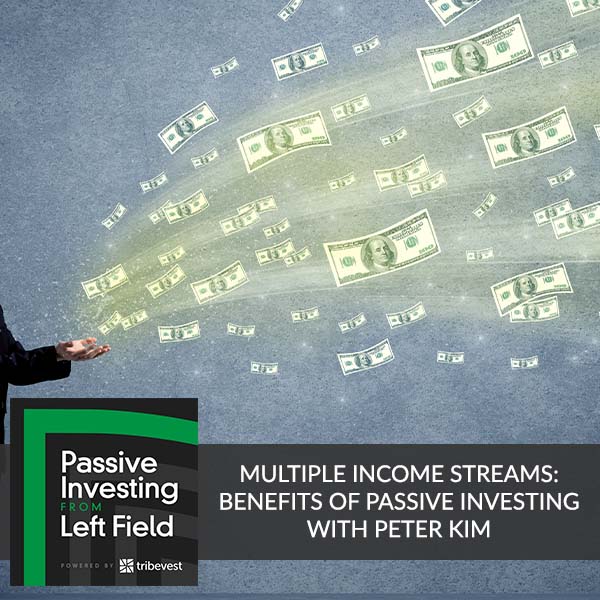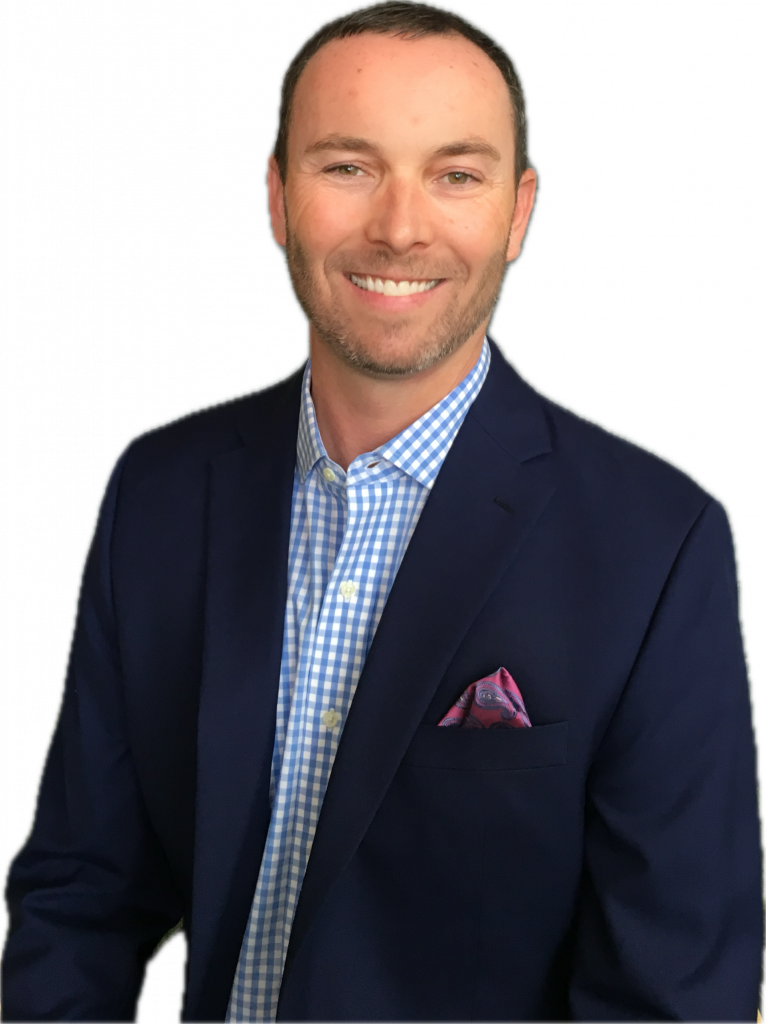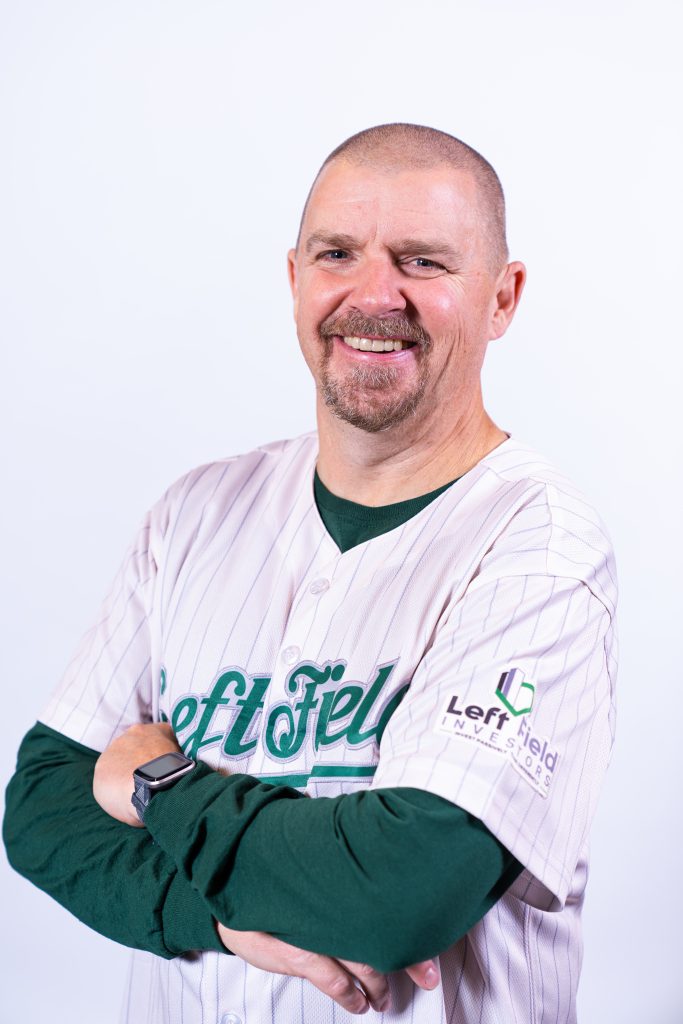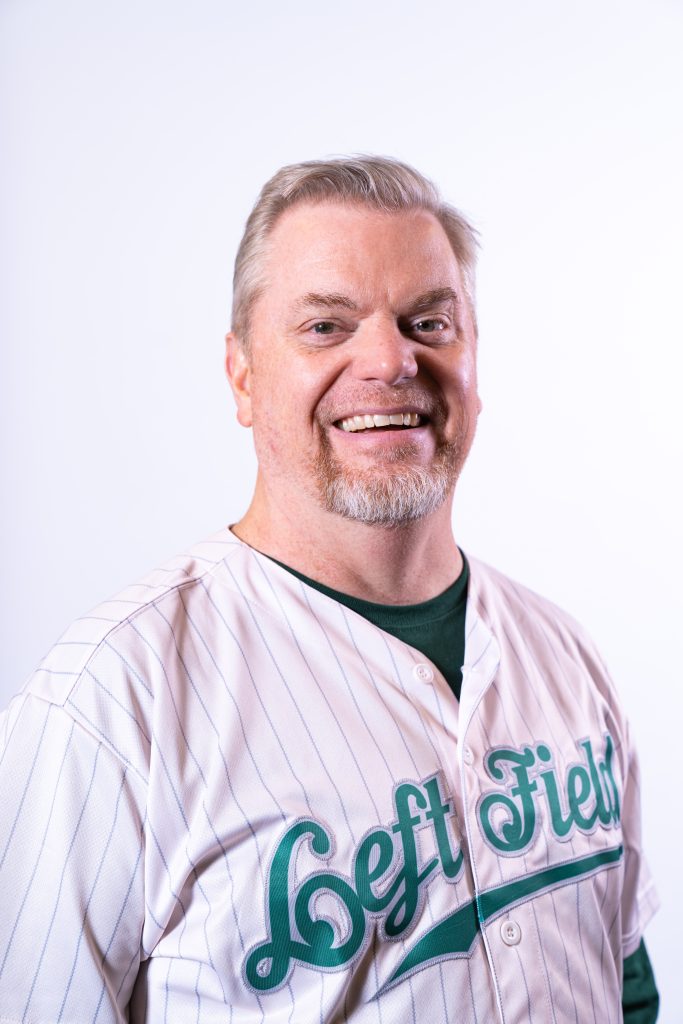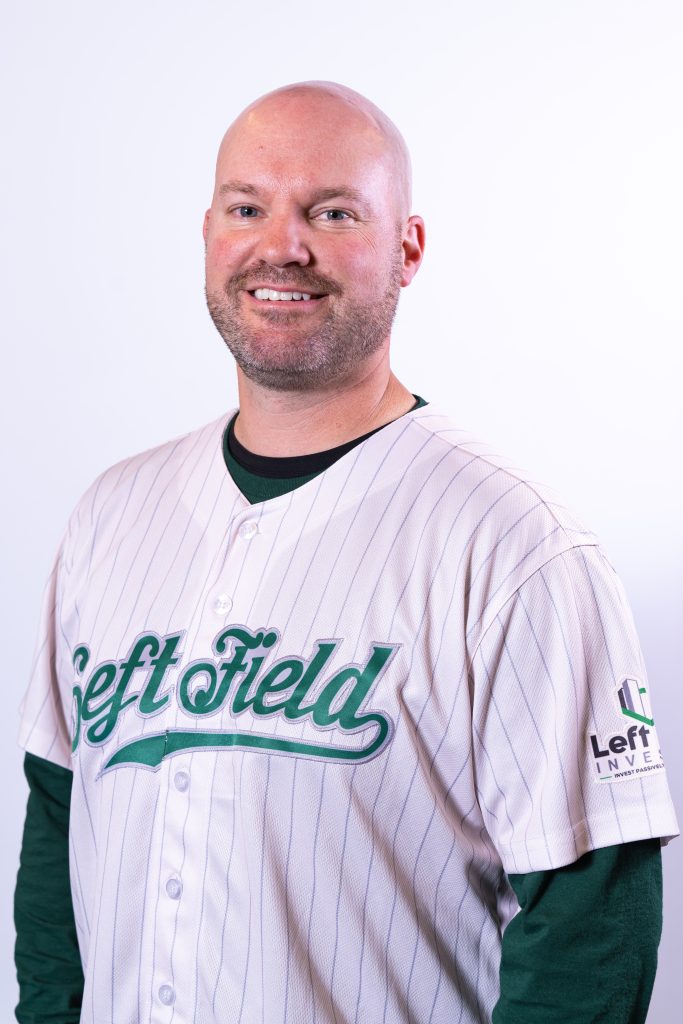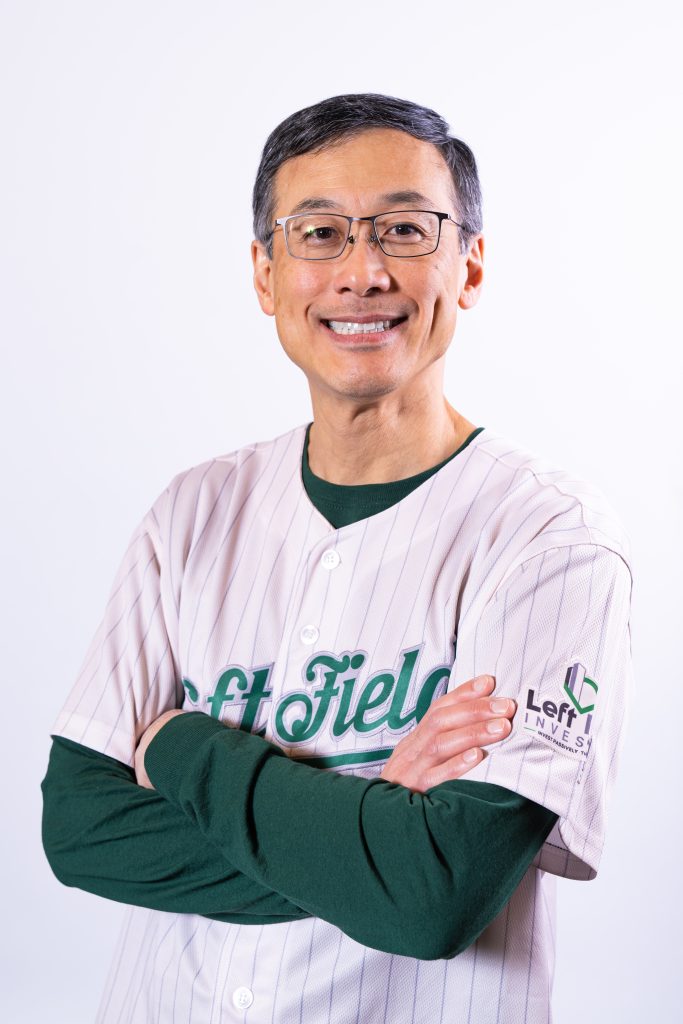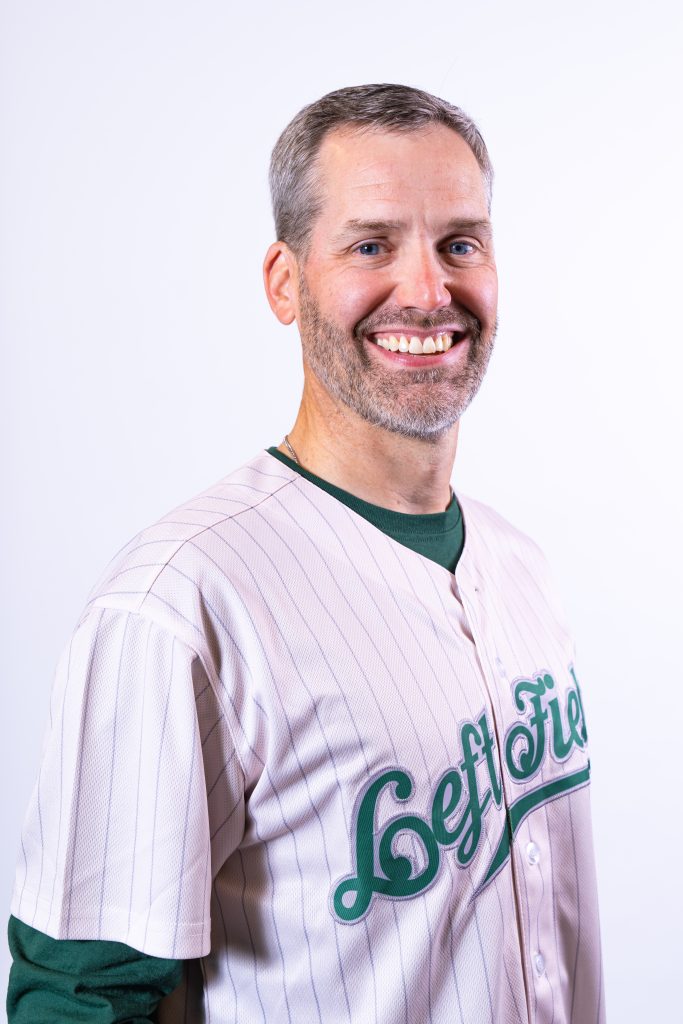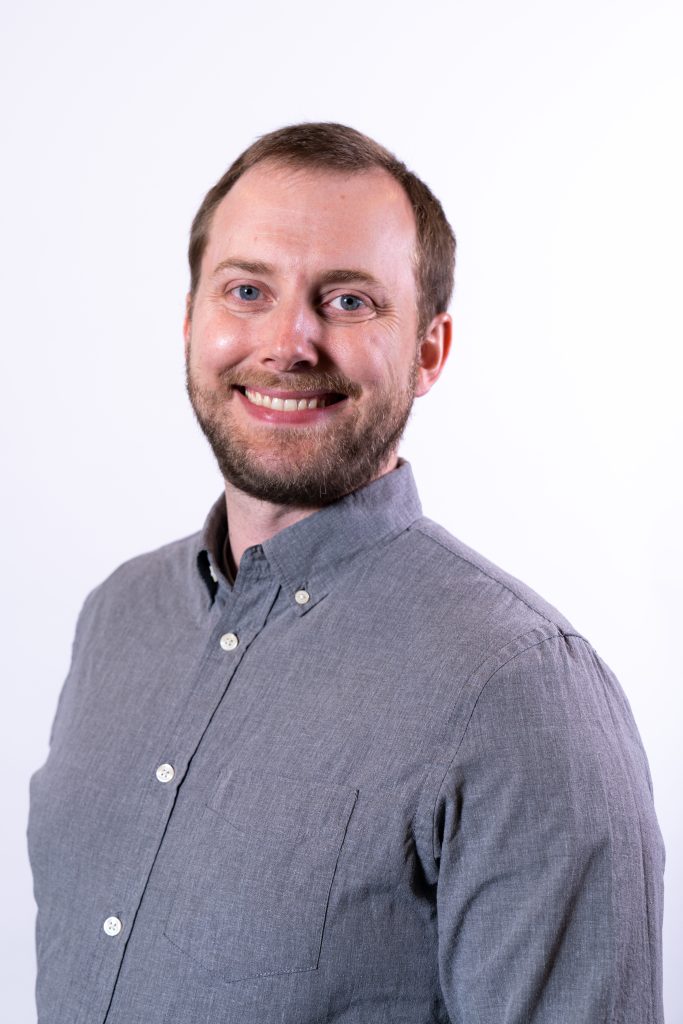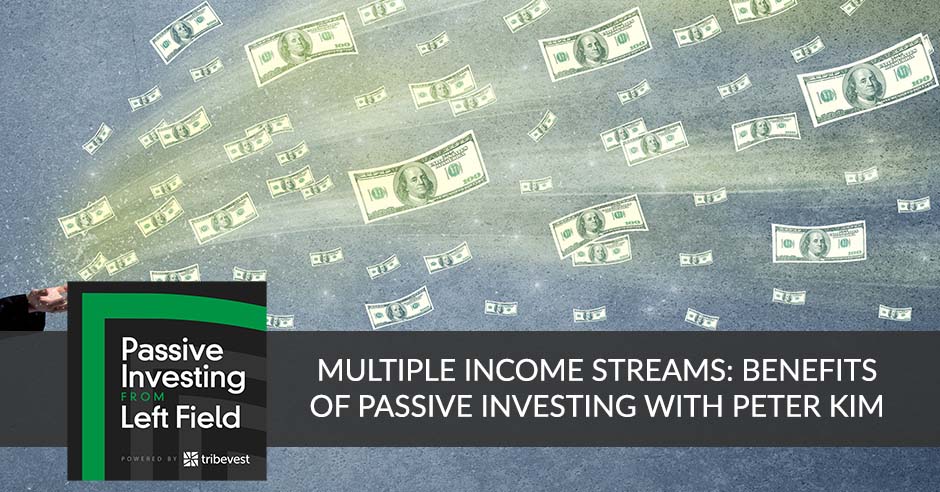
Often, when people are working in lucrative occupations, they have a lot of income coming in, but they do not have control of their time, their income, or their life. That is how today’s guest, Peter Kim felt when he was working full time as a doctor. He saw examples of other successful professionals who had bought back their time through multiple income streams and he decided to learn from them. Today’s episode features physician, entrepreneur, investor, and founder & CEO of Passive Income MD, Peter Kim as he and Jim Pfeifer discuss how you can use multiple income streams to gain control of your life and earn back your time. Peter also talks about the benefits of having the right network and community to find quality operators and mitigate the risks of investing in passive real estate. Tune in to learn more about balancing your time practicing your profession on your terms while enjoying the financial freedom and security you get from passive income streams.
—
Listen to the podcast here
Multiple Income Streams: Benefits Of Passive Investing With Peter Kim
I’m excited to have Peter Kim with us. He’s an anesthesiologist working in Los Angeles. He’s also the Founder of the Passive Income MD Community, a group dedicated to helping physicians achieve financial freedom through multiple streams of income. Peter is also the host of the Passive MD Podcast. Peter, welcome to the show.
It’s an honor to be here. I’m excited to talk to you.
Thanks for coming on. The first question I always ask is to hear about your journey. You’re an anesthesiologist and a medical professional. How did you get into the passive investing world? How did you get to med school and then what happened after that took you on this other path to find multiple income streams?
Life is funny. I had no intention of ever investing in real estate. That’s not how I grew up. My father was a doctor and that’s where I always expected I would land as well. That was my goal in life, to become a doctor and live a good life. I felt like I’d be set doing all these amazing things, helping people but also living a good both financial life and a family life if I became a doctor.
That’s exactly how the path went for years and it seemed like I was doing everything right. I graduated from medical school. I graduated from my training and then became what’s called an attending. Attending is you’ve finished your training. You start working. Honestly, I thought it was set and I got my dream job right off the bat. I was like, “This life can’t be going any better.”
What happened about two years into the job was something changed. The terms changed for me in terms of my schedule. Next thing you know, I realized that I was working these pretty crappy shifts taking other people’s nights. My income was affected as a result as well. I realized that I wasn’t in control of my career, schedule, time, life and income.
I found myself working on so many different holidays and things like that. I understand that’s part of the job to a certain degree but I thought I would have a little bit more control over my life. When I look back, I was like, “This is not exactly what I planned it to be.” I remember being pretty upset about it because it was a big realization. You think you get there, you’re set and all of a sudden, the terms change. I wasn’t sure what to do at that point.
I started talking to as many people as I could in the hospital like different doctors and people I knew that seemed to have it together. They seem to live a pretty good life and are pretty happy. They had a good balance of family life, medicine and that sort of thing. It turned out that I noticed a pattern. I noticed that so many of them, if not all of them, had figured out a way to create some income stream outside of medicine. This wasn’t a lot of people. It’s a few of them that I noticed. When I talked to them, I said, “Tell me more about that. What exactly are you doing to create that income stream? How does it create that freedom for you?”
It turns out that the vast majority of them were investing in real estate. Some of them own their properties. Some of them were investing passively through syndications and funds. I started diving in. I started learning all that I could from them and then started going to places like BiggerPockets and local real estate meetups to figure out what it was in terms of passive investing real estate, both active and passive, to figure out how that was going to get me where I wanted it to be.
[bctt tweet=”Investing in a small amount that you can afford to lose and getting some education out of it can help you move forward.” via=”no”]
After going to a bunch of these meetings for about months, I decided, “I can’t go to more meetings and read enough more books. I got to start investing.” I started investing. I made some mistakes, I’d say but little by little, that cashflow started to come in and it started to make a difference. Next thing you know, I was able to essentially buy my time back, meaning that maybe I had to do a certain shift on a weekend but I felt like I had that amount of money come in passively. I was able to give up that shift to somebody else and they were able to take that shift.
Instead of that income, I still got it from outside sources. That was a taste of freedom that I first got. I remember thinking, “This is crazy and amazing. I get to stay home on a weekend, hang out with my wife, get to do what I want to do but I don’t take a hit on the income side.” I got obsessed at that point. I’m like, “This thing is working. How can I get rid of all my nights?” I kept thinking, “How about I can cover my whole income?” I started thinking about different ways to do that. All along the way, I started sharing that with people. Eventually, I started a blog, podcast and courses at conferences. That’s how my whole story went and how I ended up here.
It’s funny how it accelerates. I had a little investment club where I was going to have dinner with 12 people to talk about passive investing and then we have a group of 1,200. It’s amazing how unintentionally, these things start but I want to go back a little bit. You did your research, dug around, talked to colleagues and found other people that were seemingly more successful because they had these extra income streams. What were your first investments? You tried a little bit of everything or at least read a lot of books and went to a lot of meetings. Were you first active? Did you go the single-family route and then find passive? How’s that journey in the real estate part of this?
One of the friends that I talked to referred me to a friend of his who was a commercial broker. He said, “This guy knows a lot about different types of investments, whether it’s multifamily or industrial.” I had never heard of these things before, especially industrial. I don’t even know what multifamily was. Somebody that’s explained to me as apartments and things like that. His friend talk to me and invited me to a real estate investor meeting by Marcus & Millichap, some big commercial real estate investor meeting. I had to happen to have the day off. I said, “Sure, I’ll tag along.”
While I was there, they were talking about this new type of investing called crowdfunding, where you can invest for smaller amounts, put your funds together with other people and invest in these deals for small amounts. That made me feel comfortable. I was like, “If I invest a small amount that I could afford to lose, maybe I get some education out of it. It would help me move forward. I wouldn’t feel like I couldn’t put food on the table for us or make a big leap.”
I’ll be honest with you, I was scared. It’s like, “I don’t want to lose money. I’ve never done this before.” The idea of putting out a small amount was attractive to me. My very first investment was a $5,000 investment into a crowdfunding deal. That situation was a debt deal where we acted like a bank and lent money out to a fix and flipper for a set interest amount for a set term. It was a year.
At that time when I was doing it, the rate they were offering was about 13%. I remember thinking, “That’s pretty sweet. If I put $5,000 and every month I get paid some interest, 13% and they get my capital back at the end, that’d be awesome.” That’s exactly what I did. That was my very first investment. After the first month where I got that first check or that deposit into my account, I like off to the races.
That first check, you might’ve taken your family up for ice cream or something but that wasn’t life-changing money. It opened up the doors and told or showed you what’s possible. What was next after the crowdfunding? When did the snowball start to roll down the hill?
It was $47, to be honest with you. I remember I showed my wife and I was like, “This is awesome.” I’m a doctor and I’m like, “$47 probably doesn’t do very much for my income in terms of debt but this is what’s possible.” I could see the bigger picture. It’s like a multiplication thing where I was like, “I invested $5,000. How much could I invest to get how much?” What I did next was I invested in a syndication deal. I heard about things called syndications where you can invest in these deals. I found this one deal online again on another crowdfunding platform, which was 2 to 3 miles from my house.

I was like, “I can see this one, drive by it and go to it.” That would give me the comfort to invest $25,000, which was the minimum. That’s what I did next. I invested $25,000 into that syndication deal. I had no idea what I was doing and what I was looking at but I knew I needed to do something. Quickly after that, I started buying my properties. A small single-family home in Indianapolis is what I did. I started doing some cashflow and then it started rolling because of all the capital that I started bringing in, I would try to figure out, “Where do I save this? Where do I put this in the stock market? Do I have to put this all towards my retirement account?”
I started saying, “With all of this cash and this capital that I’m saving to put on investments, how can I follow this into real estate investments?” The next thing you knew, I started investing in more syndication deals. It’s almost like I couldn’t find enough capital to invest but everything I did, I started tossing it in there. To be honest with you, it’s not like that first year that it created huge waves. It takes time, especially in these syndications, for the cashflow to come in. Especially when you’re on buying your property and fixing up the property, it’s not like you have a lot of extra income but after about 1 year or 1.5 years, maybe in that range, is when I started to know the cashflow started to come in.
It felt like things had stabilized a little bit and were under control. I saw that trajectory where I was like, “This is possible. I can do this. It’s a matter of time and putting more money in whenever we created.” That’s when things started to make a difference for me. It took about maybe about 2 to 3 years before I was able to essentially buy my first night back. I make a pretty good income as a doctor. Those night shifts are pretty lucrative and they can be but on that first night, I was able to buy back. I was off to the races after that.
That’s how it goes because it is a snowball that rolls downhill. With those first ones, you send someone a wire for $25,000 and you’re paranoid about it. After 6 months, nothing and then you get your 1st check and it’s $166.67 or whatever it is. You’re like, “That’s a little bit.” It keeps rolling. The more you invest, the bigger your snowball gets. That’s awesome. It’s interesting too because it seems like most people start with the single-family homes but you started with the syndication and then went to the turnkey approach. What are you investing in? Are you doing mostly syndications? Are you still doing some of the more active stuff like turnkeys or single-family homes or anything like that?
I’ve moved away from the single-family home because of time, capital and leverage. It’s pretty much the same amount of work buying a single-family home and managing it as having an apartment building. Especially as you get scale and get more units under your belt, you can hire more professional management because it’s worth it for them at that point. Honestly, your job becomes easier.
I found that I’ve kept to some of the larger apartment buildings but I also did buy a short-term rental because I wanted to try that out. I wanted to see what it was like and it served a dual purpose like almost a vacation home for me but also, I want to learn about short-term rentals and Airbnb. I tell people it’s little cashflow beasts for me at this point. It’s nice. It is worth my time.
To be honest with you, I like to keep my active portfolio, meaning the ones that I own are in a small little box. This is the amount of time that I’m willing to put towards it because ultimately after that, it feels like a job. That’s never why I wanted to invest because I don’t want to find another job. I have a good job as a doctor. This is an amount of time that I’m willing to put towards my active portfolio. The rest goes towards passive investments, different syndications and funds. As you might know, I put together some deals as well too but that’s a time when I’m willing together to put towards that reason.
For example, I had a twenty-unit apartment building in the Northwest that had the potential for a lot of cashflow but I don’t know what it was. It was like a bad juju on it, bad karma or something but that property kept having issues after issues. Half of the units caught on fire. There was an environmental design issue on it that was unresolved and some domestic disputes. It’s constantly one thing after another. I realized it was not worth my time. I sold that whole thing, funneled that money and split that money between a short-term rental and then on passive income. I couldn’t be happier about it.
I’m the same. I’ve gotten rid of most of the stuff. I like how you put it in a box. You have a finite amount of time you do on the active stuff. I went similarly but I threw away the whole box. I don’t want to do anything where I’m the Asset Manager because I would prefer to pay people who are much better at it than I am to manage assets. I went passive. I want to talk about your next step. You started a community. That started with writing a blog and sharing information with people. Can you talk about why you started a community and how you did it?
[bctt tweet=”People accelerate when they get together with other like-minded people and share information.” via=”no”]
It’s probably much like yourself. You wanted to get people together, help people, educate people and maybe share what you are learning. That’s how it was for me. When I first started trying to learn about real estate investing, the first thing I did was I got together ten people. We started meeting for dinner once a month to talk about it. I knew probably the least amount but I figured learning from each other and sharing our experiences, our journey, mistakes and that thing, we’d all get better. It started there but then people found it difficult to meet all the time.
I started sharing with other people and then they were like, “Can you put this online so I can read them?” I had never done such a thing. I’d never written before. I never even considered myself a writer. After sitting on that idea for a while, I felt like no one else was doing this in the physician space. I decided to put it up. I honestly did it anonymously because I didn’t want to share my name. I wanted to share the information. I didn’t know what my work would think about it.
I bought this domain Passive Income MD. I started putting up articles or things that I was learning and started even sharing some of my numbers and things like that. I started to grow it. People rallied around it. There was this whole group community of people, especially doctors, who felt like they wanted to practice on their terms.
They loved what they did, meaning to practice medicine but they didn’t want to do it under the control of somebody or how they wanted to do it. That somehow resonated with people. It started growing and growing. Next thing you know, I felt compelled to let people know who I am because I wanted to get together. I then started creating communities of people, both online and in Facebook groups. I started getting together in person before things shut down. I was getting together in person with people and started having meetups. I started a conference to get people together on a national scale and created a podcast.
It’s funny because it was never my intention to grow a brand like this. I have no experience in doing so but it grew out of me. I wanted to share it with people. Ultimately, people accelerate so much when they get together with other like-minded people and then share information. You’ve probably been to a lot of real estate conferences but when you go to real estate conferences, it might be 1 or 2 conversations you have there which make the whole conference worth it. I get more out of it talking to people in the hallway or outside in the lobby, whatever it is than I do sometimes inside the room. That’s the experience that I want to recreate when I created my conference.
We have a forum in our community and people talk. One of the topics was what do you do when you go to a conference? What’s the best way to attack a conference? What you said is exactly what some of the more people said. Skip the presentations and hang out in the hallway because that’s where the real connections happen.
I feel like we’re following your path but we’re maybe a couple of years behind you because we’re getting ready to have our first meetup in October 2022. One of the things we tried to do for our first in-person meeting is we don’t want people in the hallway. We want people to go to the presentations but we also decided we’re going to make a bunch of the meetings in the hallway. We’re going to have networking constantly and try to make it so the presentations are short but the networking is long. We’ll see how that goes. It’s interesting to me that we are on the same path. Nothing intentional and all of a sudden you have this community.
There’s such a need for it. For everyone that wants to start a new community, I’m all in support of it because I realized that everyone has their networks and way of doing things. People resonate with certain different people, whatever they might be. More communities like this are necessary to spread the word.
I love that abundance mindset. That was visible when we met and you were giving me all kinds of tips and tricks on how to help my community and make it grow. You didn’t see us as a competitor. I love that way of thought because there are plenty of people in plenty of communities that can absorb the number of people that are getting interested in this. What are some of the benefits of an investment community? You mentioned some of them like accelerating your learning but what do your community members get out of being in that community?

The major thing is it’s all about sharing information and resources. Sometimes you’re able to leverage the overall capital of the group to try to get better terms, deals, transparency, accountability, whatever it might be. Share from people’s mistakes. That’s what it is. People come from different experiences and have different connections. For everyone to bring that into the pot, I feel like it only makes people stronger. Sometimes what we do is look at a deal collectively as a group, not that everybody invests in it or everyone does not invest in it but to explore it to say, “What do you see that I don’t see?”
Some people have local knowledge of that area. They might be able to tell you, “They say it’s this but it’s not this.” There are so many different perspectives in the pot to give you a full picture of a deal. A lot of times, we only see what they tell us on these offering memorandums. Everything looks amazing. Everything looks like a great deal. What if somebody else has some local knowledge and maybe somebody has some perspective? They worked with them before or they haven’t or they’ve heard other things.
Everyone gets smarter together. I love when people get together to share that information. To be honest with you, even after we’ve looked at a deal, there might be some people that decide and say, “This will be perfect for me.” The other people say, “No. For this reason, it’s not perfect for me.” That’s fine. Ultimately, if everyone gets better optics on it and understands it better, then we’re going to help each other get where we want to be.
That’s the key. You’re helping each other. We had an example in our community where a bunch of us invested in one particular deal with an operator and there were some hiccups in the operation. Everyone was griping about it. One of the community members said, “I’m going to call them up and talk to the operator.” They talked to the operator, got some great information and shared it with all of us.
One of the interesting things the operator said was, “You’re part of Left Field Investors. When you’re talking to me, it’s like talking to 20, 30 or 1,200 people.” It also changes the perspective of the operator because they know that they’re not talking to one person. They’re talking to a community. That is a powerful thing as well.
A group like yours doesn’t want to piss people off. They’re educated people in that space. They’re all going to share information. You want to make people happy. Providing a little bit more transparency and accountability for them, that’s powerful.
I want to talk a little bit about doctors. By doctors, this could be anybody who’s a high-income earner. Doctors are a focus of yours. I have some doctor friends and they tell me they get approached all the time about investments because people are like, “Doctor, you have money.” Do you have recommendations on how to handle that? You have all these operators coming to you and saying, “This is a great investment.” How do you figure out which ones are and which ones aren’t and go through that process?
Some people see it as more like, “I’m getting hit up all the time and it is not a good thing. It’s a nuisance.” I love it because I feel like opportunities are coming to me and our community. I see it as a good thing. You’ll have to dig through it but the opposite is worse where you can’t find any deals. I’d rather have more deals come across my plate. I want to make sure that I have a system and that everyone has a system for quickly filtering through these and making sure that they can say yay or nay. The key in our community has been spending time on how to do the proper due diligence. We’ve tried to create almost a roadmap to break it down into a system so that it’s easy to say yes or no and move on.
Honestly, the quickest thing we want people to get to is a place to say no. Why shouldn’t they do it? If they can’t find that, then that’s great. The moment you get that no, then you can shove that thing aside and move on. People come to us. If you’re not armed with the knowledge and you don’t have the community, you can get taken advantage of and end up in bad deals. That’s why communities like yours and ours exist, to not only help people find good deals but the more important thing is to help people avoid bad situations and bad deals. As we all know, losing money hurts a lot more than making money. When you’ve lost 50%, you’ve got to gain another 100% to get back to where you were.
[bctt tweet=”Find the right person or the right group who knows what they’re doing then you know that they’re going to be able to deliver on their promise.” via=”no”]
Warren Buffett’s rule is never to lose money. That’s where the power of community also helps. We focus on what are the key red flags that you have to look out for. How do you quickly find those things out? How do you get to eventually to a yes? You’re going to filter through a whole bunch of deals and that’s going to be the rest of your life if you are in this community. That’s not a bad thing.
That gives you an opportunity to look at the whole scope and then figure out what’s good for you. Ultimately, my goal is to filter all that to maybe my ten sponsors that are the go-to sponsors that I will look at deals with again and again. For someone else to come in from that outside to try to get into my top 10, it’s going to take a lot of energy and effort but focus on those top 10. That’s plenty of deal flow. I don’t have to do the due diligence on the actual operators as sponsors. It is a matter of me looking at their deal quickly and saying yes or no.
You talked about having a system, a filter and some red flags to quickly say no. That hits home with me because you get so many people and deals coming to you. It is good if you can find something to say no to. That allows you to then move on. If you can’t find something to say no to, then you can dig in and say, “Am I going to say yes?” Can you give us a few of your red flags or filters that might knock someone out into the no group?
It comes down to who’s operating the deal. You and I both have talked about that. That’s the majority of the deal. Do you find the right person or group who knows what they’re doing? If they do, they’re going to be able to deliver on their promise. When I’m talking about the promise, I’m talking about the business plan, whatever’s on the offering memorandum that they can perform for the property and you as the investor. How do you find out who is good and who isn’t good? It comes down to track record. You’ve got to spend time digging into the track record.
If that’s all you did, you looked at a sponsor and their track record and understood it in full detail, you’re probably in the majority of the way to making a good decision or a bad decision on this. For me, one of the biggest red flags is a sponsor and operator that probably isn’t fully transparent about their track record. Surprisingly enough, people are like, “I can’t believe that happens,” but there’ve been a couple of operators whom I asked for their full track record that wasn’t willing to give it to me. They say, “Some of these things are confidential. This is when this person was involved and responsible. I can’t give you all of it.” They can’t give you all the numbers behind it. I find that strange because if you’ve done well in the past, whether you’ve still made some mistakes, you’d want to show a body of work.
I’ve had that situation. We’ve had a few people that were close to us that we thought might be good partners of ours and then they were skittish on their track record. We said, “No, we’re not going to do business with you.” That’s number one. The challenge is finding good quality sponsors that have a great track record that their minimums are good for you as the investor. At a certain point, if they have an amazing track record, oftentimes, they may not need additional investor capital or need to expand their network. How do you find that? I don’t want people to learn on my dime or capital. We have a choice.
We have so many sponsors and operators out there so why not find somebody who has a good level of experience? It’s not like a bad thing to take a flyer on somebody you know but I try to avoid doing that, to be honest with you. I try to find those that are experienced, have a certain amount of assets under management and have had a certain number of closed deals. They also have a good understanding of how to mitigate risk and then know how to explain when maybe things haven’t gone as well.
You have talked about multiple income streams. That’s one of your things. I saw somewhere where you said it’s not only desired but it’s necessary that high-income earners need multiple income streams. Why do people need multiple income streams? What are some of the types of income streams you would recommend?
I used to think it was optional, especially in our world. As doctors, we naively assume, like I did, that once you made it, that’s going to be it, you’re going to have a great job and it’s going to be stable. If anything, the pandemic has shown us that black swan events and weird things can happen. I know many physicians that got laid off or had huge hits in income. I did. Our group said that we’re going to have to drop reimbursements by 30% or the amount you make by 30% starting now. That can be disruptive. It’s crazy to think that you don’t have any control over that.

I find that with the changing political environment and regulatory environment. I’ve seen people whose businesses have blown up immediately because of the change in regulations and things like that. I find that if you have a family, other people that depend on you, employees and all these types of things, you owe it to them to diversify. To me, that creates true security at the end of the day.
Even if you think you’re a high-income earner, you own your business and you think you’re bulletproof, things can and will change. That’s the one thing we know. Unpredictable things are going to come along, which is why I believe you need some diversification. If one stream happens to dry up for whatever reason, you have other places to pull that income from. You don’t have to get desperate. You have the leverage to make good decisions and things like that.
For example, let’s say a doctor like me. I’m an anesthesiologist. I know so many friends of mine whose groups necessarily have been bought out, taken over by a hospital, reimbursements have dropped or these kinds of things. Next thing you know, you have to make a decision over the next week or two whether you’re still going to be working there or not or you got to move. Having that extra income stream creates some security for you. What are some of those other ones? I tell people that it’s up to you, whatever your interest is, how much time you’re willing to put into it and honestly, how much capital you have to invest in that additional income stream.
Real estate happens to be a natural thing. That’s how I started because I saw so many other doctors do it. Especially when you invest passively, you can take the capital that you make on one side, invest in experts on another side, leverage their capital, experience, knowledge, resources, whatever it is to create more of those income streams. Real estate is a very obvious one and I’d say pretty tried and true.
The other thing that I encourage people to do, especially if they have some entrepreneurial type spirit, is to start a business. There are so many different types of businesses to start. There are some that you can buy and create based on interest. I remember talking to so many doctors initially and saying, “You should start thinking about creating a business.”
I’ve had so many of them go, “I don’t have the time and energy. I don’t know how to. I don’t know this.” They hear a story of another doctor who’s done it or something similar. Next thing you know, they try and create a thriving business. I’ve seen it. Every spring, I have a virtual summit called The Leverage and Growth Summit, where all I do is interview doctors who have started other businesses to create that income stream.
Some of them were practicing medicine. Some of them are not practicing medicine but it can be anything. Maybe it’s somebody who was a pediatrician who was super passionate about taking plastics out of their kids’ hands. They’re worried about the effects of that because they’d done a lot of research on that. What she did was like, “What are the other options out there?” She realized stainless steel was an option. She created this whole stainless steel line for kids to be able to eat off of. Next thing you know, the thing’s gone national. It’s in these national retailers. She’s like, “I have no background experience in the business. It was born out of a passion.”
One thing you know about doctors and probably everyone reading this is that we’ve all achieved success because we have ambition, the drive and the capability to do anything that we put our focus on. I believe that. Why not do something else if you’re passionate about it or interested in it to be able to create that security? That’s my whole take on it.
Part of the difficulty people have visualizing this happening is because we are all so busy in our day-to-day and think, “I can’t do that. I don’t have the time.” Once you take the time, do this purposefully and it pays off, then all of a sudden, you’ve bought back your time. Maybe you’re not going so hard at the W-2 because you don’t need to. The purpose of my community and your community is time freedom. To get time freedom, you need financial freedom. To get financial freedom, you need multiple income streams and that gets you away from your W-2.
[bctt tweet=”Unpredictable things are going to come along, so it’s good to have some sort of diversification. If one income stream happens to dry up, you have other places to pull that income from.” via=”no”]
If you’re interested in it, you’ll find the time. It doesn’t matter what it is in life, whether you love golf or watching Netflix. Whatever you are passionate about, I promise you, you’ll find the time to do it. I don’t know where you find the time but for me, I like to write a blog. What I would do is think of ideas in my car. I started dictating into my app on the car. I find time for it. I would wake up an hour earlier because I was so excited. I would write or read something. You find time for things that are important to you. You got to figure out what you want and then why you want it. If you’re passionate enough about it and it means enough to you, you’re going to make it happen.
I want to pivot here a little bit, not get into the weeds but ask a specific question. I’m seeing a lot of operators converting from single asset operators more to a fund model. It keeps happening over and over. I’m wondering, do you have a preference? What do you think about the fund model and single asset syndications?
I feel like it’s a natural progression. Once it becomes quite successful and they have a track record again of performing well and getting what they say for their investors, their investors tend to be jumping at every opportunity that comes along the way with that one investor. For example, there are a few sponsors that were doing quite well over the last couple of years. There was a fight, honestly, a battle every time to get into the next deal.
When you get to that point, especially as a sponsor and operator and you know that you have all this capital at your disposal and investors, you probably want to do them a service and say, “I want to be able to put your capital to use. Honestly, it’s probably more efficient if we have that capital already ready to go. It’ll probably help us in terms of negotiating deals. Also, budget and allocate. Why not go after multiple assets because we have the people that are willing to already invest in those deals?”
It’s almost like pre-funding a lot of deals. I get it. It probably is more efficient for them in some ways. In terms of the capital raising side, they raise essentially once into one vehicle and then are able to deploy that into a bunch of different deals. Some fun dynamics are a little bit different, meaning that they have to set up certain roles for when they can stop acquiring, start selling off properties and use it to give themselves more time on a typical deal.
It’s not going to be your normal 3 to 5-year turnaround. Maybe they have to say it’s going to be closer to 7 or 8 to 10 years. I find that sponsors and operators, once they’ve reached a certain point, a lot of them end up moving in that direction or some of them keep a hybrid. Some of them might do a few deals here but then also have that fund model.
This is something that I’ve gone through as well personally and thought about it. I like investing in both. I have invested in funds and then in single deals as well. Sometimes I like to know what I’m investing in. It’s nice to know that that one single property is mine. I’ve done the due diligence on it. I can look at the property and say, “I like that specific property.”
When you’re investing in a fund, a lot of times, it’s pretty blind unless you’re coming to it a little late. Maybe you know what assets already are in there. What’s nice is that if you trust that operator or sponsor and you know that they’re going to do a good job, a lot of times you’re like, “I’m willing to give you this much capital. Do your best with it. I trust you.” You know that you’re going to get diversification off the bat too. You’re not just investing in one property. If that one property doesn’t do as well, you might be into 5, 10 or 15 other ones that will, over time, balance each other out. It gets you that diversification and comfort.
I don’t necessarily allocate a certain amount towards single deals and a certain amount towards funds. Whatever opportunity is in front of me, I have the capital. I’m ready to go. Whatever seems to be the best at that time, I seem to go for. I find myself honestly pretty much split. If I have to look at where I’ve allocated, it’s split between funds and single deals. I don’t think you can go wrong either way. There’s no right or wrong. It’s what you’re looking for.

The first funds I was in or the ones I was most comfortable with were the ones that I had first been in a few single asset deals with that operator. They went to a fund. The ones that I have a little bit harder time jumping in on are the ones that are already doing a fund and I didn’t get a chance to analyze an individual deal.
As with you, there are advantages to funds that you only have to invest once so you have diversification. If one deal goes not to pro forma, maybe the other one will exceed it. There are advantages. The last question I usually ask is what’s a great podcast that you listen to? You cannot use Passive Income MD because that’s your podcast. What’s 1 podcast or 2 that you like to listen to?
I like to listen to podcasts a lot because I’m in my car and commute. I find that’s the best time to educate myself. One of my favorite podcasts is How I Built This. It’s by Guy Raz. It’s an NPR podcast. It’s stories of entrepreneurs and how they built their businesses. I love listening to them and honestly noticing the patterns between the different people. It’s inspirational not because they built huge businesses like Slack, Zoom or these kinds of things. There are also smaller businesses.
What I’ve noticed in each of those stories is that almost all of them didn’t have necessarily huge business backgrounds or have it all laid out for them. They all went through failures. They all struggled and stumbled. They were persistent and great things happened. The way that they interview these people creates a story. We all connect to stories. I found myself connecting to so many of the entrepreneurs on that podcast. It’s my favorite to listen to. I always find some source of inspiration from each episode.
Lastly, if people want to get to know you or connect with you and learn more about your community, what’s the best way to do that?
The best way to do that is probably in two places. Number one, it’s the Passive Income MD website, www.PassiveIncomeMD.com. I do have a podcast, the Passive Income MD Podcast. You can look for that wherever podcasts are. We have an awesome community that focuses on proper due diligence and creating confidence in people who wants to invest in passive real estate. That’s called Passive Real Estate Academy, www.PassiveRealEstateAcademy.com. Those are the best places.
Thank you very much. It’s been great being on the show with you. I appreciate you coming on. We’ll keep in touch for sure.
Thanks so much. That was a lot of fun.
Thank you.
—
I enjoyed that conversation in multiple ways. One, I appreciate Peter for what he’s done for our community. I had a conversation with him where he helped us figure some things out as far as how to make the community sustainable and improve a lot of things that we were doing at Left Field Investors. He has his community. He didn’t have to help. He is an abundance mindset. Even after this episode, he offered more help and consultations. He’s a couple of years ahead of us. Learning from him is super helpful. I appreciate Peter so much.
One of the things he said is when he was working as a doctor, he was making a lot of money but he was not in control of his time, his income or his life. That’s pretty powerful. He felt out of control. He was probably making quite a bit of money as an anesthesiologist but he wasn’t able to be content because he wasn’t in control. In having additional income streams, he saw some examples and other people and he thought, “That might give me some more control of my time, income and life.”
He did it. He was able to buy back his time and that’s with an income stream. Instead of having to work that Saturday night shift, he had enough income where he could say, “I’m not working that one. Someone else can have that.” He didn’t have to. He didn’t need the money because he had money from his other income streams. That’s so powerful. It gives you that freedom and allows you to do so much more.
He also mentioned the power of community. It accelerates learning. You’re learning from like-minded people who are sharing information. Being like-minded doesn’t mean we’re all robots thinking the same thing. It means that we are people open to thinking about other ways to build financial freedom and build wealth for our families. Communities accelerate that. You can learn from other people as I learned from Peter how to manage our community better. When you’re inside of the community, you learn from so many different people. I am ten times better at investing now than I was before we started this community. That’s thanks to all of you in the community. Peter hammered that home.
When he was talking about multiple streams of income, his look on it is as diversification and protection. A lot of them can come from syndications. They could be different asset classes and sponsors. Those are separate income streams. That allows you diversification. If one goes down, they don’t necessarily all go down. If you lose your job, you still may be okay. If another black swan event happens and it doesn’t affect all of your income streams simultaneously, you’re going to be okay. That’s what we’re working for. We’re working for financial freedom and we’re going to be okay. Those are two same and separate things. Peter had a lot to say about that. That was interesting.
The final thought I have is his abundance mindset. I’m trying to do the same thing. We’ve had some investment communities that are excluding certain people because they’re a sponsor. They run communities and are a restricted mindset. Having an abundance mindset is so much easier and more comfortable. It’s better. I encourage people to be a member of Left Field Investors. I’m biased. It’s a great group and you can learn a lot but go to Peter’s group, Passive Income MD. There’s a ton that you can learn there, bring that back to Left Field and share it. In the same way, stuff you learned in Left Field, go share it with another community like Peter’s community or another one.
A rising tide lifts all boats. I strongly believe in multiple communities. I’m a member of three. Left Field is a great one but Passive Income MD is as well and there are others out there. I encourage everybody to be involved in whatever community you’re in. Even if it’s multiple communities, do that as well. Get involved, keep learning, share and teach others. That’s what we’re here to do. That’s what makes Left Field Investors such a great community and what makes Peter and Passive Income MD a great community as well. Thank you, Peter. We will keep in touch. That is it for this episode. We’ll see you next time in the left field.
Important Links
About Peter Kim
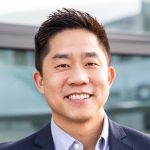 Peter Kim is an anesthesiologist living in Los Angeles, trying to make it in one of the most expensive cities in the world. He grew up on the East Coast but followed his amazing wife out here. Now he can’t imagine living anywhere else. Peter is also the guy who will pretty much try anything if he thinks it will make a positive impact on his life. He has a family consisting of a wife, kids, and multiple dogs. Trying to balance his time spent with them while continuing to practice medicine on his terms (i.e., as much as he wants) while being supported financially by passive income streams is an end goal.
Peter Kim is an anesthesiologist living in Los Angeles, trying to make it in one of the most expensive cities in the world. He grew up on the East Coast but followed his amazing wife out here. Now he can’t imagine living anywhere else. Peter is also the guy who will pretty much try anything if he thinks it will make a positive impact on his life. He has a family consisting of a wife, kids, and multiple dogs. Trying to balance his time spent with them while continuing to practice medicine on his terms (i.e., as much as he wants) while being supported financially by passive income streams is an end goal.
Our sponsor, Tribevest provides the easiest way to form, fund, and manage your Investor Tribe with people you know, like, and trust. Tribevest is the Investor Tribe management platform of choice for Jim Pfeifer and the Left Field Investors’ Community.
Tribevest is a strategic partner and sponsor of Passive Investing from Left Field.

